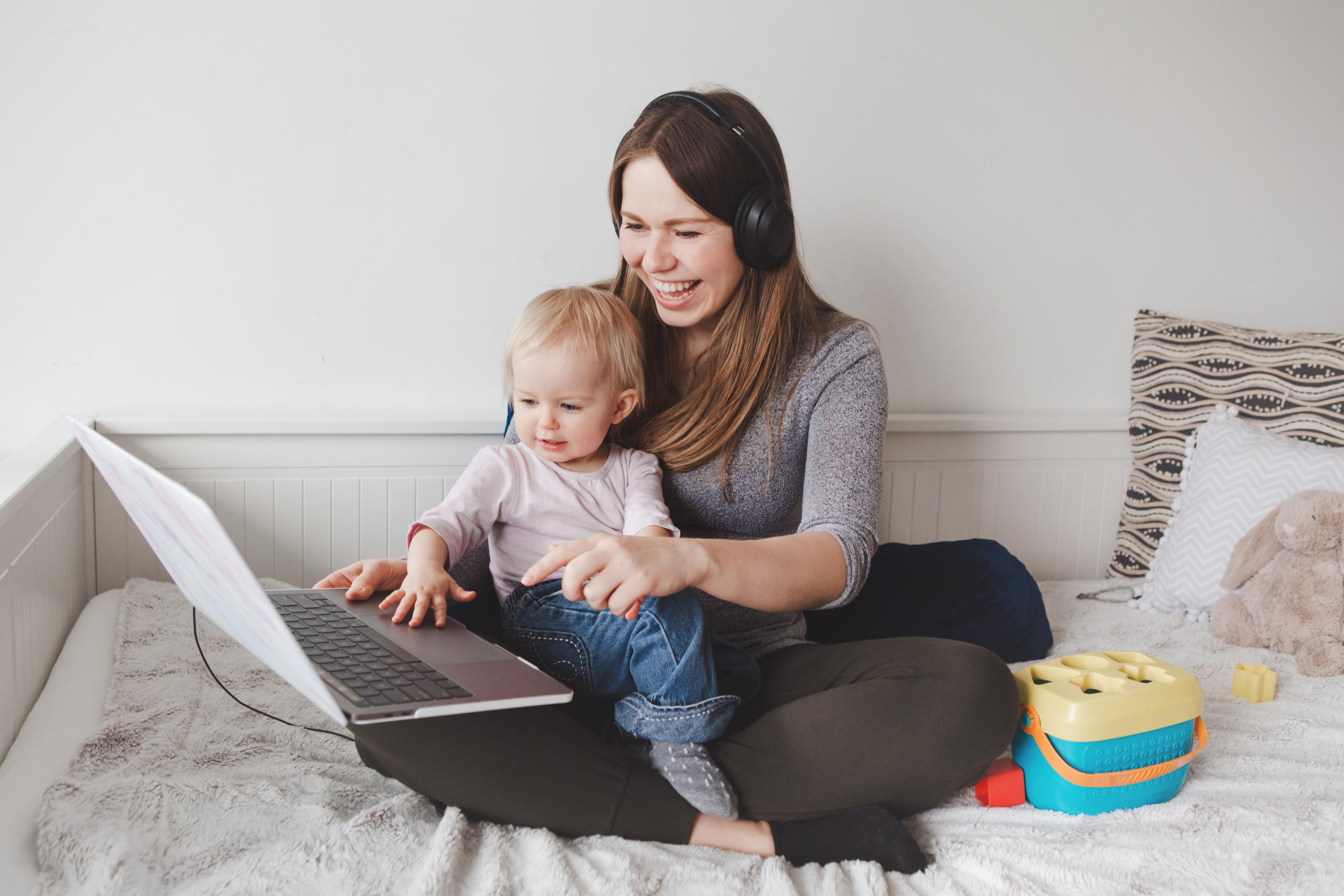
Child Services
We offer assessment and therapy for babies, toddlers and school-age children with a wide range of communication difficulties.
Loading...
The Speech Clinic operates throughout South Wales and South West England.
The Speech Clinic is a member of the Association of Speech and Language Therapists in Independent Practice (ASLTIP).
The Speech Clinic offers weekday appointments throughout the day as well as before and after work/school. We also have weekend clinic sessions.
Online therapy and groups are also running.
The Speech Clinic employs qualified, state-registered Speech and Language Therapists with Enhanced Criminal Records Bureau disclosure. Our therapists are members of the Royal College of Speech and Language Therapists and the Health and Care Professions Council. The Speech Clinic’s therapists are committed to providing the highest quality of service to our families.
15 minute free telephone consultation with a qualified Speech and Language Therapist.
01792 206 784At The Speech Clinic, we provide assessment and therapy for children and adults with a wide range of difficulties.
The initial assessment session begins with case history taking, followed by formal and informal assessment of the difficulties.
Formal assessment is tailored to the adult or child's specific needs. Children's assessments use pictures and toys to compare the child's ability with an expected age-related standard. This allows the therapist to explore the extent of the child's difficulties and to plan an appropriate intervention programme.
Analysis of the assessment findings allows the therapist to diagnose speech, language or communication deficits.
The results can be presented as a formal report if required.
The Speech Clinic employs qualified, state-registered Speech and Language Therapists with Enhanced Criminal Records Bureau disclosure. Our therapists are members of the Royal College of Speech and Language Therapists and the Health and Care Professions Council.
There are a variety of treatment options available in order to meet each person's needs. Most adults and children opt for individual therapy sessions in our clinic rooms on a once or twice weekly basis. The therapist sets clear goals for each session, which target the specific areas of deficit identified during assessment. We are keen to provide homework activities at the end of each session.
The Speech Clinic also offers intervention at home, school or nursery. This may be more convenient for families and allows for liaison with children's teachers and classroom support workers. Most schools are keen for additional input and welcome the opportunity to liaise with the therapist on a regular basis.
The assessment results and diagnosis can be presented in a formal report at your request. The Speech Clinic can also provide reports for Annual Review meetings and upon completion of treatment.
Programmes of therapeutic activities can be provided to homes and schools if there is a designated person to work with the individual. These programmes describe the key activities to practice and include the required resources.
The Speech Clinic is pleased to provide regular therapy services to a number of local schools and colleges. Being based within an establishment for regular days each week allows us to work with a range of students as well as providing staff training.
Our therapists work with individuals and run groups, as well as providing assessment and reports where indicated. This allows educational establishments to access specialist input in a timely and focused manner.

We offer assessment and therapy for babies, toddlers and school-age children with a wide range of communication difficulties.

We offer both formal language assessment and functional communication intervention for adults with a range of difficulties.

We offer expert dyslexia assessment and tuition with our in-house Dyslexia Service.
Our Dyslexia Service offers in-person sessions in Cardiff, as well as a full online service nationwide.

We provide weekly sessions within mainstream and special schools and colleges providing therapy and training staff.

We provide assessment, diagnosis and therapy over online services for adults and children of all ages.

We run regular online communication groups to boost speech, language and communication skills.
The Speech Clinic is an independent provider of Speech and Language Therapy services to children and adults. We have clinics in Swansea and Cardiff, and provide home and school visits throughout the area. We work with individual clients and their families, as well as schools, colleges and care homes.
The Speech Clinic provides a range of services, including assessment, diagnosis, therapy and producing written reports/intervention programs. We also provide training for staff and carer groups working with children and adults with communication difficulties.
The clinic employs Speech and Language Therapists from a range of backgrounds with various skills and specialisms, including a fluent Welsh-speaking therapist. We are able to provide assessment and therapy for clients with speech/language delay, learning disability/autism spectrum disorder, acquired/traumatic brain injury, stammer, voice impairment, post-stroke and dementia/Parkinson’s disease.
All new adults and children are assessed and then goals are set which target areas of deficit. Goals are reviewed and updated every seventh session so that progress is continuous and sustainable. Small homework activities are provided after every session so that skills are generalised outside of the clinic environment. Where possible, we liaise closely with our NHS colleagues to provide a seamless transition between NHS and independent services.
At The Speech Clinic, we enjoy working closely with our individual clients and their families, as well as working to provide training to wider groups of carers, including nursery staff, teachers, learning support assistants and care assistants. We provide lecture-based training, as well as coaching sessions in which the therapist works alongside the teacher to apply strategies within real-life scenarios.
Our Speech and Language Therapists have post-graduate training in a variety of techniques, including Intensive Interaction, Signalong/Makaton, Picture Exchange Communication System (PECS), Talking Mats, Symbol UK Down Syndrome therapy techniques, SCERTS, POPAT, Colourful Semantics, Michael Palin Stammering Centre techniques and management of selective mutism.
We are delighted to talk to new families and establishments about the services we may be able to offer.
Most initial assessments take one or two sessions. By the end of the second session, we aim to start therapy so that we can provide homework tasks after this session. We also set goals at this point which are worked on for the first block of sessions.
Some people attend for formal assessment and provision of a report; this usually requires three or four formal assessment sessions.
Assessment sessions last for one hour and are charged at £60 per session. The assessment results are discussed with you in detail; a report is only provided if required and there is an additional charge for this.
We are able to see you or your child in any location. Home or school visits incur an additional travel charge which is calculated using the postcode. There is a minimum visit charge of £90 per session (one hour).
Your Speech and Language Therapist will ask for your signed consent to liaise with other involved professionals, including your NHS Therapist. We ask that you continue with your NHS therapy so that you or your child receive maximum intervention. We are pleased to liaise with our NHS colleagues and coordinate goal setting, therapy approaches and intervention plans.
Most people require weekly therapy sessions in order to make progress. In some cases, such as an adult who masters a therapy technique and then practises it for a fortnight before returning to therapy, less frequent sessions are useful. However, most people and certainly most children make limited progress with fortnightly sessions.
If finances are difficult, we see much more lasting progress from a six-week block of weekly therapy sessions, followed by a six week break to consolidate skills and practise generalisation activities. Following this pattern involves the same financial investment over a one-year period, but much greater improvement and retention of skills than fortnightly sessions.
Initial sessions are paid for upon booking using a credit or debit card. Further sessions are paid for by card each week.
Home or school visits can be paid for by card or by bank transfer, using your name or your child’s name as the reference.
We accept Visa, MasterCard and American Express credit and debit cards for your convenience.
You are able to self-refer to The Speech Clinic and do not need a GP referral. Please bring any reports from other involved professionals along to your appointment.
Adults with voice problems need to have been seen by the Ear, Nose and Throat (ENT) Consultant to exclude malignancy prior to their voice therapy sessions.

Formal assessment is tailored to the adult or child's specific needs.
Assessments use words, pictures and toys as appropriate to test a range of skills.

Therapy sessions range from forty-five minutes to one hour in duration and are priced accordingly.
Therapy focuses upon activities which improve various aspects of speech, language and communication.

Assessment and therapy sessions can be conducted in the home or school if preferred.
Visits outside of clinic incur a travel charge which is calculated using the postcode.
Since starting sessions at The Speech Clinic, I feel that my sessions with the therapist have greatly increased my confidence in my speech. I have developed speech strategies which I can use to enhance the clarity of my speech in both social and professional situations. My general confidence in terms of my communication I feel has greatly increased, and I am more able to identify where improvement is still needed. My therapist, is an excellent Speech and Language Therapist, with whom I have built a good rapport since I started attending The Speech Clinic. I cannot recommend The Speech Clinic highly enough.
The Speech Clinic has been delivering Speech and Language Therapy to the members of our group since 2015. One of the biggest challenges for children with Down Syndrome is difficulty with communication and speaking; caused by low muscle tone in the facial area, learning delays and different learning profiles. Effective Speech and Language therapy is essential for children with Down Syndrome, enabling the development of a core life skill, enabling them to reach their full potential in education, developing their social skills and actively engaging with the community in which they live. The Speech Clinic has been integral in our endeavour as a charity to ensure children with Down Syndrome access this critical service.
In March 2018, my wife Pamela had suffered a second brain haemorrhage and she was very ill. She lost her memory, speech, movement on her right arm and leg. I managed to find a clinic who specialises in the Speech and Language Therapy and I was introduced to a highly qualified speech therapist who specialises in assessing and treating speech, language and communication problems in adults and to enable them to communicate to the best of their ability. Speech and Language Therapists use specialist skills to work directly with the client, providing support to them, their family and their carers. I would not hesitate to recommend The Speech Clinic to anyone who is in need for a SLT.
My daughter is 14 years old and has benefited from The Speech Clinic's oversight for ten years. She has Down Syndrome (DS) and common symptoms of the condition are speech delays; there are structural difficulties such as the size and shape of the mouth, palate, and tongue, and also intellectual impairments. As parents we needed professional help to develop our daughter's speech and language (S&L) and allow her to play an active part in our community. NHS provision, when available at all, veered from being excellent, through frustratingly hit and miss, to poor. We decided to purchase private S&L and soon plumped for this organisation. They have a very positive and inclusive view of the capabilities of kids with DS and we learned over time that the staff were cut from the same cloth. We have had three successive and long-term Therapists and each of them has taken our girl further forward. They are solid in the basics of their craft but also pay attention to personalising their inputs, liaising with school staff such as the SENCO and LSAs. They have developed materials for our daughter to use in both primary and secondary schools, have sat-in on Annual Reviews and prepared and presented base-line reviews and developmental reports. The Therapists have all been enthusiastic and professional and our daughter enjoys her weekly sessions very much. In line with the passage of time, sessions have been held at our home, at the firm's HQ, in Primary school and, now, weekly in the High school linked into her school timetable. S&L from The Speech Clinic is perhaps the most important of our daughter's long-term inputs and we feel they have been worth every penny in enabling her to communicate with others and play an active part in the world.
My son attended Speech and Language Therapy sessions which improved his words and sentences. I would recommend The Speech Clinic.
The Therapist has been working with Joan for the last 9 months or so. She has been amazing; she is so patient, positive and encouraging in all her sessions. When the Therapist first came to see Joan 6 months after she had a massive stroke, the only words she could say at this point were “Oh my God” and “Hello” (automatic speech). Her standard conversation consisted of “Duh, duh, duh” and her nonverbal communication skills were not good. The Therapist has worked on basic sounds and on words that are important to Joan. Although Joan will never have the fluency to have a high-level conversation again, she now has 40 or so words and short phrases that she can say with about 90% accuracy and continues to improve. Joan’s confidence in communicating has grown and, thanks to the Therapist putting a communication book together for her, her nonverbal communication ability has grown dramatically. She manages to get simple requests or needs across very well by using a mixture of gestures, words and her communication book. Although abstract or more complicated conversation can be trickier, she is prepared to put the effort required into making herself understood and mostly achieves this. We are very grateful to the Therapist, for enabling Joan to come this far and to continue in her progress.